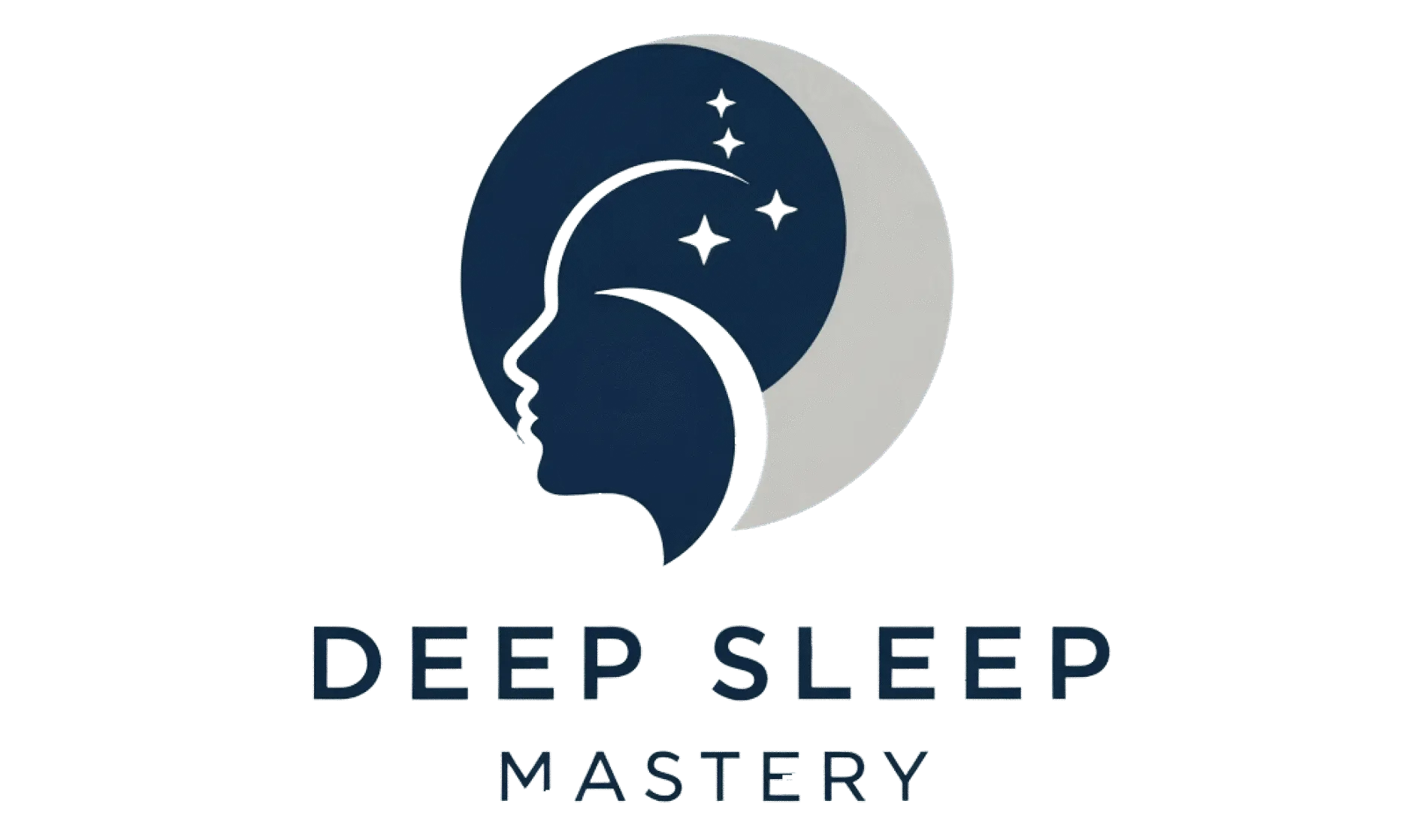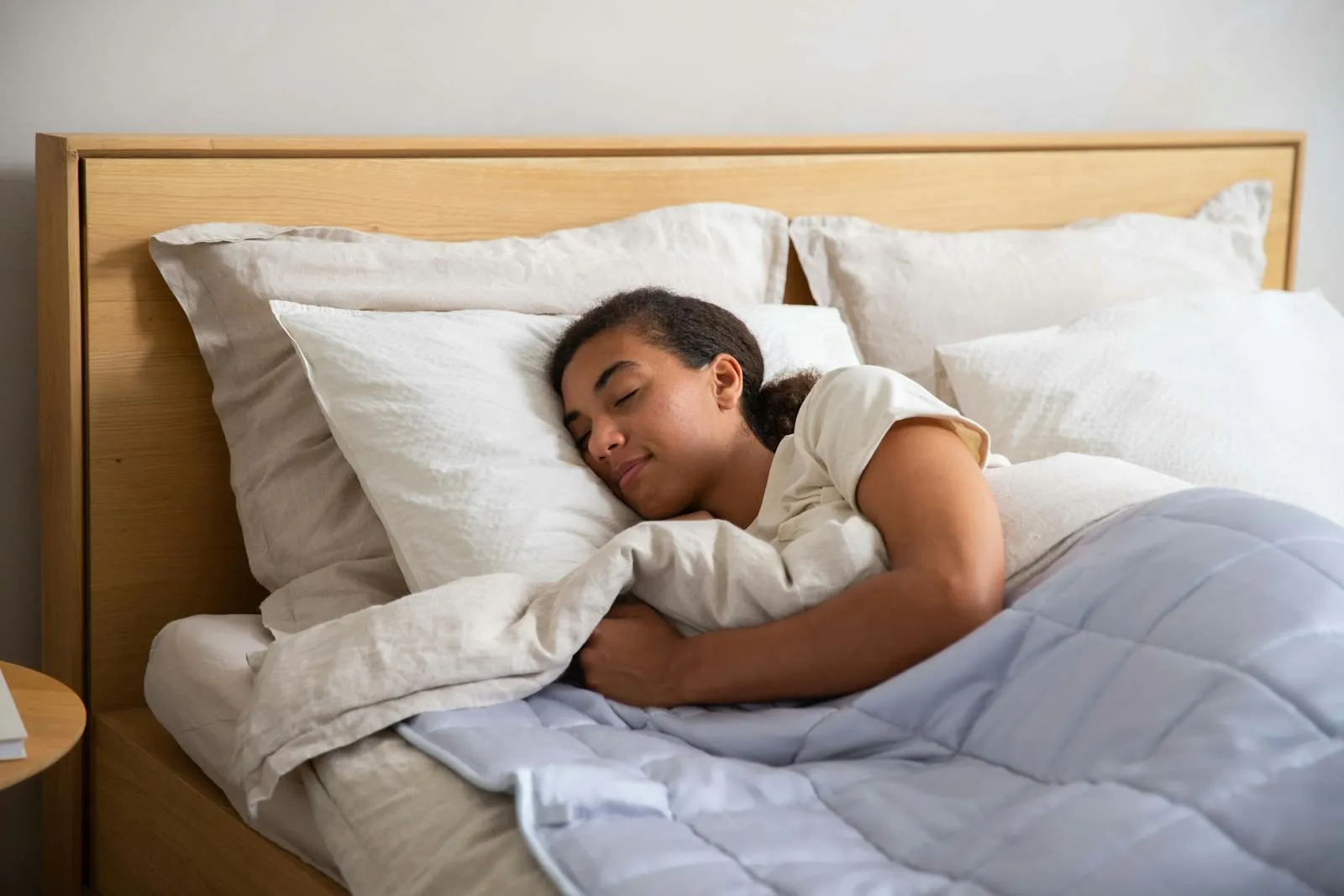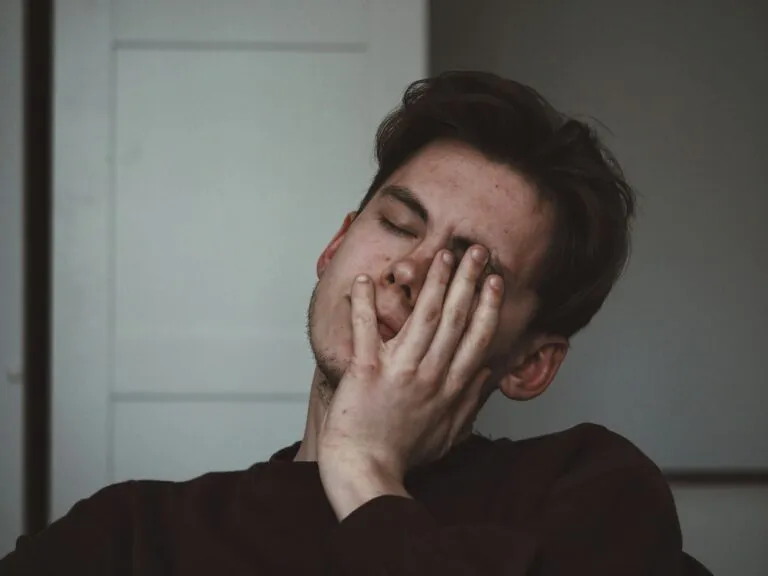What is Deep Sleep? The Complete Guide to Your Most Restorative Sleep Stage
Here’s something wild: most people only spend about 15-20% of their night in deep sleep. That’s less than 2 hours out of an 8-hour night! And here’s the kicker—that tiny slice of time is doing more heavy lifting for your health than almost any other biological process in your body. Understanding what is deep sleep can help you appreciate its importance.
Deep sleep isn’t just “sleeping really hard.” It’s a specific, measurable stage of sleep where your brain waves slow down dramatically, your body kicks into serious repair mode, and some pretty amazing restoration happens. If you’ve ever wondered why you can sleep for 8 hours and still wake up feeling like garbage, the answer probably lies in your deep sleep.
In this guide, I’m going to break down exactly what deep sleep is, why it matters way more than you think, and most importantly—how to get more of it starting tonight.
Before we dive deeper, let’s clarify what is deep sleep and why it plays a crucial role in your overall health.
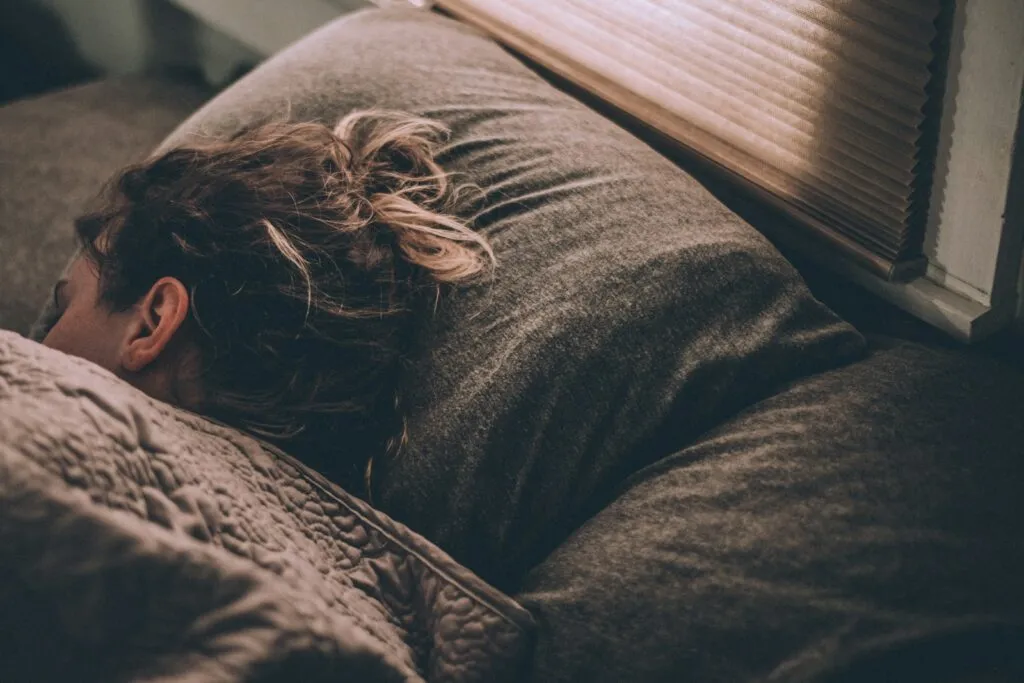
Understanding Deep Sleep (Stage 3 NREM Sleep)
Deep sleep goes by a few different names in the sleep world. Scientists call it Stage 3 NREM sleep (Non-Rapid Eye Movement), or sometimes “slow-wave sleep” because of the distinctive brain wave patterns it produces. Unlike REM sleep (where you dream), deep sleep is when your brain basically goes into power-saving mode.
During deep sleep, your brain produces delta waves—these are super slow electrical patterns that look completely different from your normal waking brain activity. We’re talking about brain waves that cycle at less than 3.5 times per second. When you’re awake and alert, your brain is firing at 12-30 cycles per second. That’s a massive slowdown!
What’s happening in your body during this stage? A lot, actually. Your blood pressure drops. Your breathing becomes slow and rhythmic. Your muscles are totally relaxed (except for the occasional twitch). Your heart rate decreases. Blood flow to your muscles increases. And here’s the really cool part—your body releases growth hormone, which is essential for tissue repair and muscle growth.
Deep sleep typically happens in longer chunks during the first half of the night. Your first deep sleep cycle might last 45-90 minutes, which is substantially longer than later cycles. As the night progresses, you spend less time in deep sleep and more time in REM sleep. This is why pulling an all-nighter or cutting your sleep short by a few hours hits your deep sleep especially hard—you’re literally cutting out the best part of what is deep sleep.
One thing that surprises people: during deep sleep, you’re really hard to wake up. Like, significantly harder than other sleep stages. If someone does manage to shake you awake during deep sleep, you’ll probably feel disoriented and groggy for several minutes. Sleep researchers call this “sleep inertia,” and it’s your brain’s way of saying “hey, we were in the middle of something important here.”
The transition into deep sleep doesn’t happen instantly. You move through Stage 1 (light sleep where you’re just drifting off) and Stage 2 (slightly deeper, but still relatively easy to wake from) before finally dropping into Stage 3. The whole progression usually takes about 30-45 minutes from the moment you fall asleep.
Why Deep Sleep Matters for Your Health
Let’s get real about why this matters. Deep sleep isn’t just about feeling refreshed—though that’s definitely part of it. This is when your body does some absolutely critical maintenance work that it literally cannot do while you’re awake.
First up: physical repair. During deep sleep, your body increases production of growth hormone by up to 500-700%. This hormone is responsible for repairing damaged tissues, building muscle, and even keeping your bones strong. Athletes who don’t get enough deep sleep have measurably worse recovery times and increased injury rates. It’s not just about “being tired”—their bodies physically can’t repair the micro-tears in muscle tissue as efficiently.
Your immune system is also going absolutely crazy during deep sleep (in a good way). T-cells—the white blood cells that fight off infections—get strengthened during this stage. Studies have shown that people who consistently don’t get enough deep sleep are significantly more likely to catch colds and other infections when exposed to viruses. One study found that people sleeping less than 7 hours per night were almost 3 times more likely to develop a cold compared to those sleeping 8 hours or more.
Memory consolidation is another huge function of deep sleep. Your brain takes all the information you learned during the day and essentially “files it away” for long-term storage. But here’s where it gets interesting—deep sleep specifically helps with declarative memory (facts, events, knowledge) while REM sleep handles procedural memory (skills, habits, how to do things). Cut your sleep short, and you’re literally forgetting things you learned.
There’s also something called the glymphatic system that ramps up during deep sleep. Think of it like your brain’s waste removal system. During deep sleep, the space between your brain cells actually expands, allowing cerebrospinal fluid to flush out metabolic waste products—including beta-amyloid, a protein associated with Alzheimer’s disease. This process is 10-20 times more active during deep sleep than during wakefulness. Pretty important stuff!
Hormone regulation is the final piece of the puzzle. During deep sleep, your body produces less cortisol (stress hormone) and more leptin (the hormone that tells you you’re full). Mess with your deep sleep, and these hormones get out of whack. This is why sleep-deprived people tend to be hungrier and crave more high-calorie foods—their hormone signals are literally broken.
The long-term consequences of chronic deep sleep deprivation are legitimately scary. We’re talking increased risk of cardiovascular disease, type 2 diabetes, obesity, depression, and cognitive decline. Some researchers believe that consistent lack of deep sleep over decades might be one of the contributing factors to dementia and Alzheimer’s later in life.
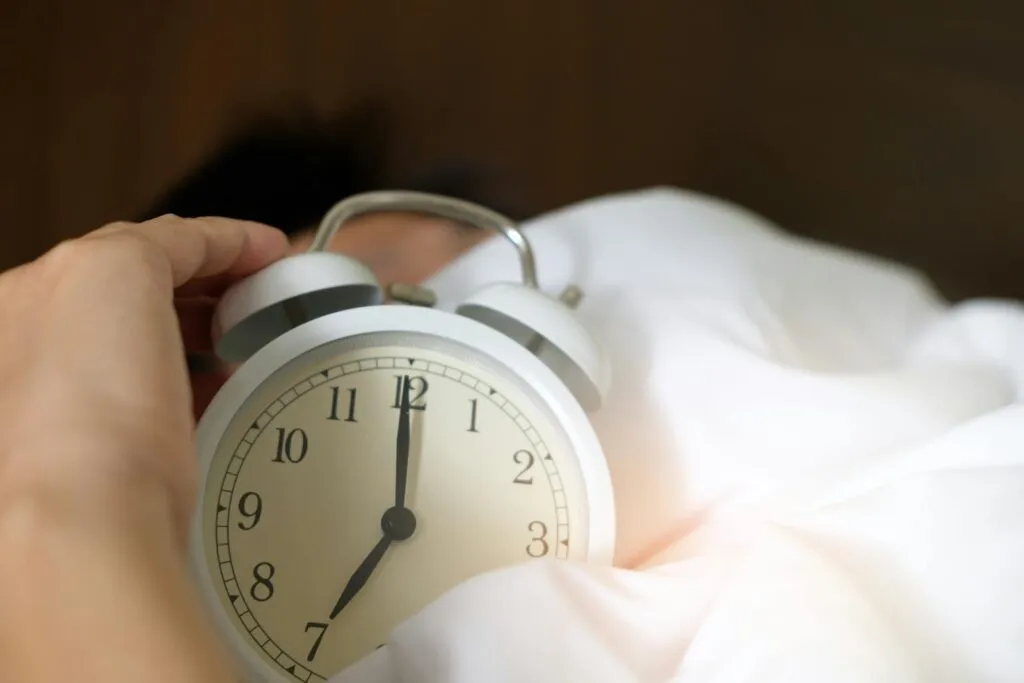
How Much Deep Sleep Do You Actually Need?
Here’s where things get a bit tricky—there’s no universal “right amount” of deep sleep that applies to everyone. But there are some solid guidelines based on age and overall sleep needs.
For healthy adults, deep sleep should make up about 13-23% of your total sleep time. If you’re sleeping 8 hours (480 minutes), that means you should be getting roughly 60-110 minutes of deep sleep per night. Most people land somewhere around 90 minutes, give or take.
Age makes a huge difference. Babies and young children spend way more time in deep sleep—up to 30-40% of their total sleep. This makes sense when you think about how much growing and brain development is happening. Teenagers still need more deep sleep than adults, which is part of why sleep deprivation hits them so hard during those early school start times.
As you get older, deep sleep naturally decreases. Adults over 65 typically get less deep sleep and spend more time in lighter sleep stages. This is normal aging, not necessarily a problem—though it can contribute to the feeling of less restorative sleep that many older adults report.
Individual variation is real, though. Some people naturally get more or less deep sleep and function just fine. Genetics plays a role here. So does overall health, fitness level, stress, and sleep quality.
How do you know if you’re getting enough? Honestly, the best indicator is how you feel. If you’re waking up feeling genuinely refreshed, maintaining good energy throughout the day without excessive caffeine, recovering well from workouts, and not getting sick constantly—your deep sleep is probably fine. If you’re checking all those boxes, don’t obsess over the exact percentages on your sleep tracker.
That said, there are some red flags. If you’re consistently sleeping 7-9 hours but still feeling exhausted, struggling to concentrate, or noticing you’re getting sick more often, your deep sleep might be compromised. This is when it’s worth digging deeper (no pun intended).
One important note: you can’t really “bank” deep sleep or make up for lost deep sleep by sleeping more the next day. Your body does try to compensate after sleep deprivation by increasing deep sleep percentage for a night or two, but you can’t fully recover weeks of poor sleep with one good night. Consistency matters more than occasionally sleeping 10 hours.
Signs You’re Not Getting Enough Deep Sleep
Let me paint a picture: you’re sleeping a full 8 hours, but you wake up feeling like you’ve been hit by a truck. You hit snooze three times. You need coffee just to achieve basic human function. By 2 PM, you’re daydreaming about taking a nap under your desk. Sound familiar?
That’s what insufficient deep sleep feels like. And it’s frustratingly common.
The most obvious sign is excessive daytime sleepiness. Not just “I’m a little tired”—I’m talking about genuine struggle to stay awake during normal activities. Falling asleep during meetings, while watching TV, or (scary) while driving. If you find yourself nodding off during the day despite getting what should be adequate sleep hours, your deep sleep is probably taking a hit.
Brain fog and concentration problems are huge red flags. Deep sleep is essential for clearing out metabolic waste from your brain and consolidating memories. Without enough of it, your thinking gets muddy. You might find yourself reading the same paragraph three times and not retaining any of it. Simple decisions feel harder. You lose track of conversations mid-sentence.
Your immune system starts waving a white flag. Getting sick all the time? Catching every cold that goes around the office? Taking forever to recover from minor illnesses? That’s your immune system crying out for more deep sleep. The connection between sleep and immunity is rock-solid in research.
Physical recovery tanks. If you work out regularly, you’ll notice it here first. Your muscles stay sore way longer than they should. Your performance plateaus or even declines. You might feel weaker despite consistent training. That’s because your body isn’t getting enough time in deep sleep to complete its repair processes.
Mood changes are another telltale sign. Lack of deep sleep messes with your emotional regulation. You might find yourself more irritable, quicker to anger, or feeling down for no clear reason. Small annoyances feel like major problems. Your stress tolerance drops.
You might also notice increased appetite and cravings, especially for sugary or high-carb foods. This is your hormones getting out of balance due to insufficient deep sleep. Leptin (the “I’m full” hormone) decreases, while ghrelin (the “I’m hungry” hormone) increases. Your body is literally signaling you to eat more, even when you don’t need the calories.
Memory problems can show up too. Forgetting where you put your keys, missing appointments, struggling to remember names or details from conversations. While occasional forgetfulness is normal, a consistent pattern might point to inadequate deep sleep affecting memory consolidation.

What Ruins Your Deep Sleep (The Sleep Killers)
Alright, let’s talk about the things that are absolutely destroying your deep sleep. Some of these might surprise you because they’re things people commonly do thinking they’ll help them sleep better.
Alcohol is public enemy number one. Yeah, a nightcap might help you fall asleep faster, but it absolutely wrecks your deep sleep. Alcohol keeps you in lighter sleep stages and fragments your sleep cycles. You might sleep for 8 hours, but you’ll spend way less time in deep sleep than you would sober. Studies show that even moderate alcohol consumption 2-3 hours before bed can reduce deep sleep by up to 40%. That glass of wine with dinner? It’s still affecting you.
Screen time and blue light exposure is the next big culprit. Blue light suppresses melatonin production, which delays your circadian rhythm and makes it harder to fall into deep sleep. But it’s not just the light—the mental stimulation from scrolling social media, watching intense shows, or reading work emails keeps your brain in an alert state. Your brain needs a gradual wind-down period to transition into deep sleep. Staying mentally stimulated right up until bedtime is like trying to go from highway speed to a dead stop instantly.
Caffeine is trickier than people realize. The half-life of caffeine is 5-6 hours, meaning half of that coffee you drank at 3 PM is still in your system at 9 PM. Even if you can “fall asleep fine” after afternoon caffeine, it’s reducing your deep sleep percentage. You might not consciously notice, but your sleep architecture is getting messed up. For some people, even morning caffeine affects their sleep if they’re particularly sensitive.
Stress and anxiety are deep sleep destroyers. When you’re stressed, your body produces more cortisol, which promotes alertness and lighter sleep. Racing thoughts and worry make it hard to relax into deep sleep. Your body can’t fully enter that restorative state when it’s in a semi-alert “watching for danger” mode. Chronic stress literally rewires your sleep patterns over time.
Room temperature matters more than most people think. Your core body temperature needs to drop for you to enter deep sleep. If your bedroom is too warm (above 70°F / 21°C or so), your body struggles to achieve this temperature drop. Most sleep experts recommend 65-68°F (18-20°C) for optimal deep sleep. Yeah, it feels cold when you first get into bed, but that’s actually what your body wants.
Irregular sleep schedules throw off your circadian rhythm, which determines when you get deep sleep during the night. Going to bed at wildly different times or sleeping in significantly on weekends confuses your body’s internal clock. Your body does best when it knows what to expect. Consistency helps maximize the time you spend in deep sleep during that crucial first half of the night.
Late-night eating can interfere with deep sleep too. When you eat close to bedtime, your body directs energy toward digestion rather than the restorative processes of deep sleep. Plus, digestive discomfort can keep you in lighter sleep stages. Generally, finishing eating 2-3 hours before bed is ideal.
How to Get More Deep Sleep Tonight (Proven Strategies)
Enough about what’s going wrong. Let’s talk about what actually works to increase your deep sleep, backed by actual research and not just sleep influencer nonsense.
Temperature optimization is probably the easiest and most effective change you can make. Set your bedroom to 65-68°F (18-20°C). Use a fan if needed. Get breathable sheets. Your body needs to drop its core temperature by about 2-3 degrees Fahrenheit to enter and maintain deep sleep. A cool room facilitates this. If 65°F feels too cold, just pile on blankets—it’s better to have a cold room and warm blankets than a warm room.
Exercise is powerful for deep sleep, but timing matters. Regular aerobic exercise can increase deep sleep by up to 30%, but exercising too close to bedtime can actually interfere with sleep. Aim to finish moderate to intense exercise at least 3 hours before bed. Your body needs time for core temperature and cortisol levels to come back down. Morning or afternoon workouts are ideal for sleep quality.
Here’s a controversial one: strategic napping can actually help protect your deep sleep, but only if done right. A 20-30 minute power nap in the early afternoon (before 3 PM) can reduce sleep pressure enough to help you make it to your target bedtime without getting overtired. Getting overtired and going to bed in a stressed state can actually reduce deep sleep quality. But naps longer than 30 minutes or taken too late can interfere with nighttime sleep.
Diet and supplements are worth considering. Magnesium supplements (200-400mg taken in the evening) may help improve deep sleep for some people. Magnesium plays a role in regulating neurotransmitters that promote sleep. Foods rich in tryptophan (turkey, eggs, cheese, nuts) eaten a few hours before bed might help as well, though the effect is modest. Avoid heavy, spicy, or acidic foods close to bedtime.
White noise or consistent background sound can help maintain deep sleep by masking disruptive noises that might pull you into lighter sleep stages. A fan, white noise machine, or even a smartphone app can work. The key is consistency—your brain learns to filter out constant sound, but sudden noises (car alarms, partner snoring, neighbors) will fragment your deep sleep.
Light exposure timing is critical. Get bright light exposure, especially sunlight, in the morning. This helps set your circadian rhythm and promotes deeper sleep at night. Then, in the evening, dim the lights. Use lamps instead of overhead lighting. Enable blue light filters on devices if you must use them. This gradual darkening signals to your body that sleep time is approaching.
The sleep schedule thing really cannot be emphasized enough. Going to bed and waking up at the same time every day—yes, even weekends—is one of the most powerful things you can do for deep sleep. Your body’s circadian rhythm thrives on predictability. After a few weeks of consistency, you’ll naturally start getting tired at the right time and getting more deep sleep.
Create a proper wind-down routine starting 30-60 minutes before bed. This isn’t just about avoiding screens—it’s about creating a consistent sequence of calming activities that signal to your brain “we’re going to sleep soon.” This might include reading (physical books, not tablets), gentle stretching, meditation, or a warm bath or shower. The warm water actually helps—when you get out, your body temperature drops, which promotes deep sleep.
Consider your mattress and pillow quality too. An uncomfortable sleep surface keeps you in lighter sleep stages because your body is constantly making small adjustments. If your mattress is over 7-10 years old or you wake up with aches and pains, it might be time for an upgrade. This is one area where spending more money can genuinely improve sleep quality.
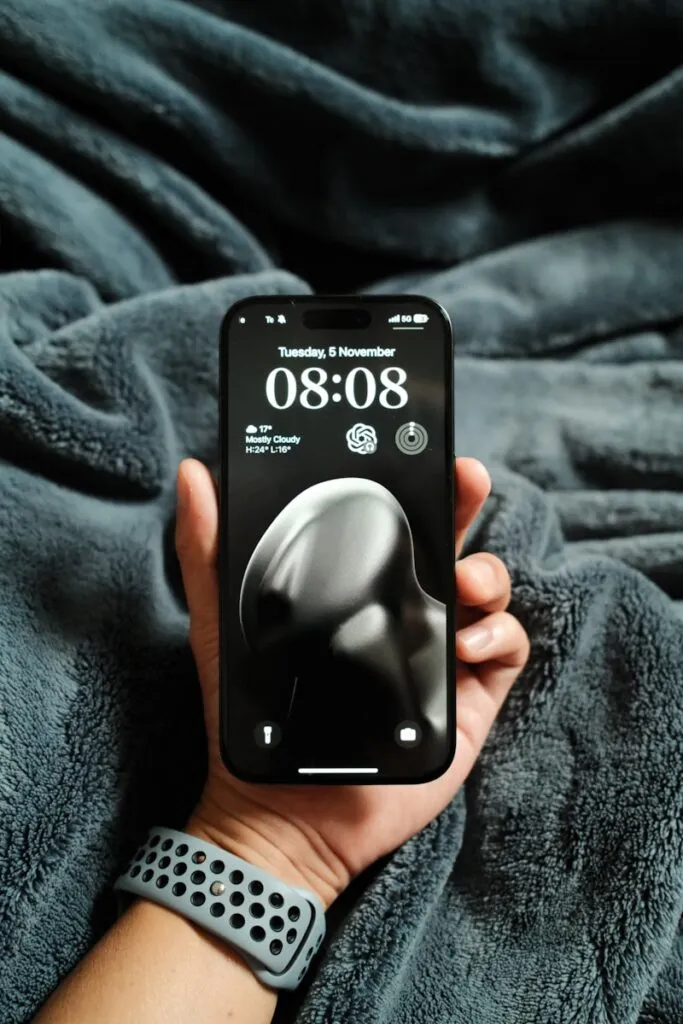
Deep Sleep Tracking: Should You Monitor It?
Sleep tracking has exploded in popularity, and now everyone and their dog has a device claiming to measure their deep sleep. But should you actually care about these numbers?
Let’s start with what these devices actually do. Most consumer sleep trackers (Fitbit, Apple Watch, Oura Ring, etc.) use a combination of movement sensors (accelerometers) and heart rate data to estimate sleep stages. They’re not directly measuring your brain waves like a proper sleep study would. They’re making educated guesses based on patterns in your movement and heart rate variability.
How accurate are they? Eh, it’s complicated. Studies comparing consumer devices to polysomnography (the gold-standard sleep study) show that modern trackers are pretty good at determining whether you’re asleep or awake—usually 85-95% accurate. But when it comes to distinguishing between specific sleep stages like deep sleep vs. REM sleep, the accuracy drops to around 60-70%. That’s better than nothing, but it’s not perfect.
Does that mean sleep tracking is useless? Not at all. The absolute numbers might not be 100% accurate, but trends over time are still valuable. If your tracker shows your deep sleep has dropped from an average of 90 minutes to 60 minutes over the past few weeks, that trend is probably real even if the exact numbers are slightly off. You can use this information to identify patterns.
What the data can tell you: You can spot relationships between your behaviors and your sleep quality. Did you sleep worse after drinking? After late caffeine? On nights when you exercised? When you went to bed at different times? This kind of pattern recognition is genuinely useful.
What the data can’t tell you: Whether you have a clinical sleep disorder. Whether your deep sleep is “enough” in any meaningful medical sense. Consumer trackers shouldn’t replace medical evaluation if you have serious sleep concerns.
Here’s an important warning: don’t get obsessed with the numbers. There’s actually a recognized condition called “orthosomnia”—anxiety about sleep quality driven by sleep tracker data. People become so focused on achieving perfect sleep scores that the stress and anxiety about sleep actually makes their sleep worse. The irony is real.
Use sleep tracking as a tool, not a report card. If you’re consistently seeing low deep sleep numbers AND you feel tired all the time, that’s useful information to bring to a doctor. But if your tracker says you got 50 minutes of deep sleep and you feel great, don’t stress about it.
When should you see a sleep specialist? If you’re experiencing persistent excessive daytime sleepiness despite sleeping adequate hours, loud snoring with breathing pauses, or if your sleep problems are seriously affecting your quality of life, it’s time to talk to a professional. Sleep apnea, restless leg syndrome, and other sleep disorders won’t be accurately diagnosed by a Fitbit.
A real sleep study (polysomnography) measures brain waves, eye movements, muscle activity, heart rhythm, and breathing. It’s done in a sleep lab or sometimes at home with professional equipment. This gives detailed, accurate information about your sleep architecture that consumer devices simply cannot provide.
Conclusion
Deep sleep isn’t just one of several sleep stages—it’s arguably the most critical period of your entire night. This is when your body performs essential maintenance that literally cannot happen while you’re awake: repairing tissues, strengthening your immune system, consolidating memories, and clearing metabolic waste from your brain.
The good news? You have way more control over your deep sleep quality than you probably realized. Temperature, timing, light exposure, exercise, and consistent schedules all significantly impact how much restorative deep sleep you get each night.
Start with the basics: cool room (65-68°F / 18-20°C), consistent sleep schedule, no screens for an hour before bed, and cut the caffeine by 2 PM. These aren’t complicated changes, but they’re powerful. Give your body a few weeks to adapt to these new patterns—sleep changes don’t happen overnight (okay, bad pun).
Remember, everyone’s sleep needs are different. What works perfectly for someone else might not be ideal for you. Pay attention to how you feel during the day, not just what your sleep tracker says. Energy levels, mood, recovery from exercise, and how often you get sick are better indicators of sleep quality than any app can provide.
Now I want to hear from you: What’s your biggest deep sleep challenge? Are you a shift worker struggling with irregular schedules? A parent getting fragmented sleep? Someone who just can’t seem to wind down at night? Drop a comment below and let’s talk about what specific strategies might work for your situation. And if you’ve found something that dramatically improved your deep sleep, share it—your experience might help someone else finally get the rest they’ve been missing!
